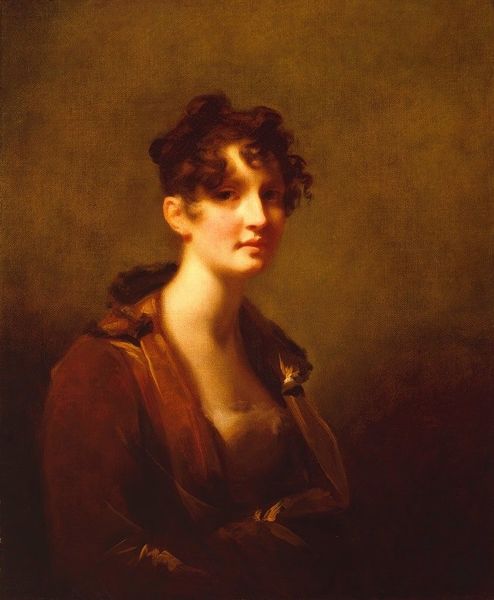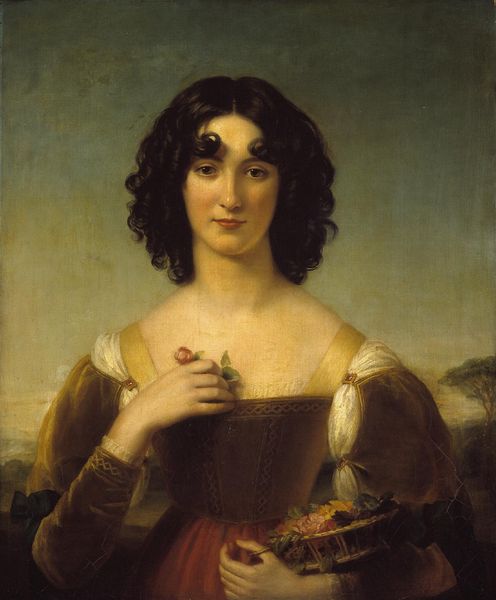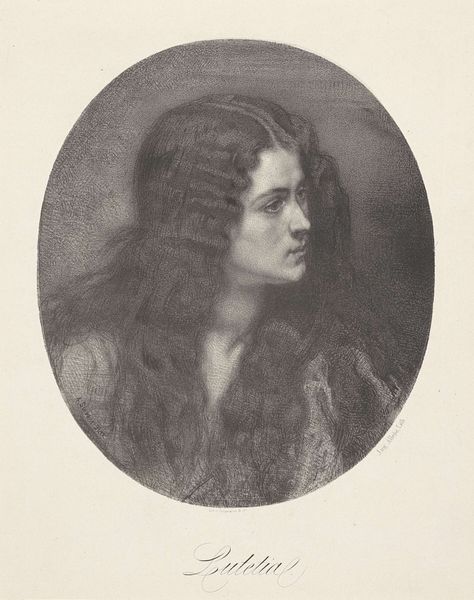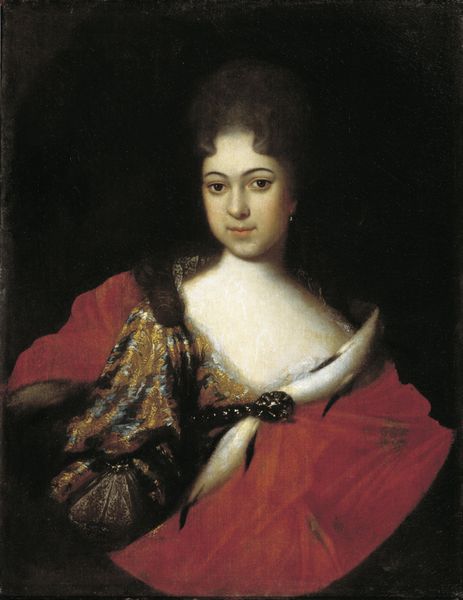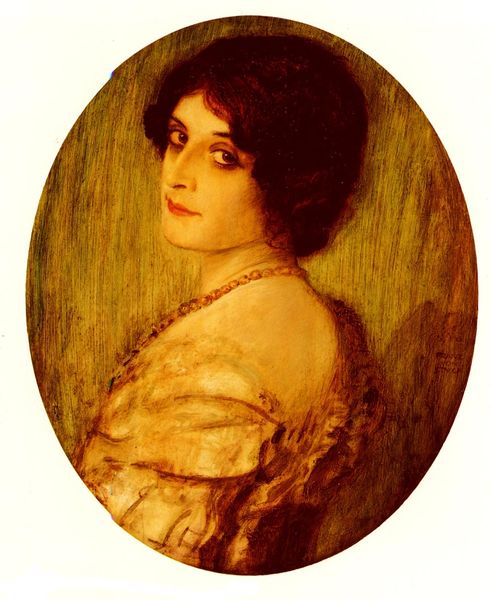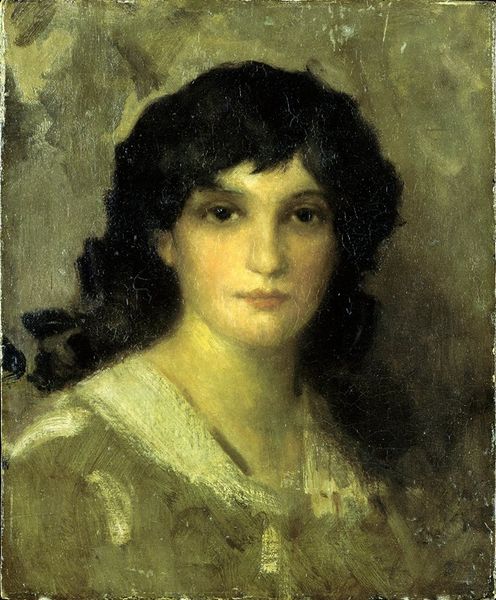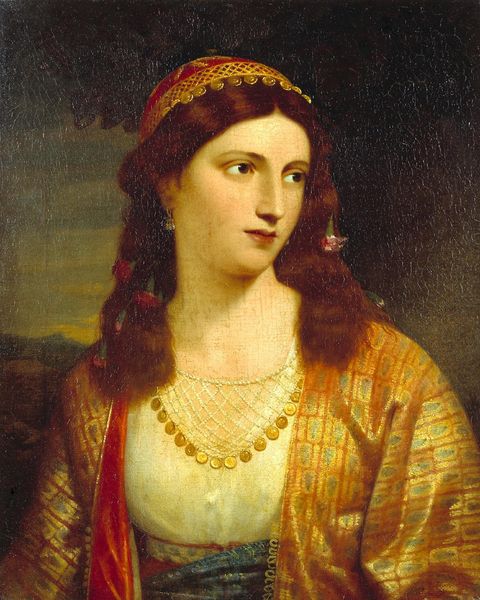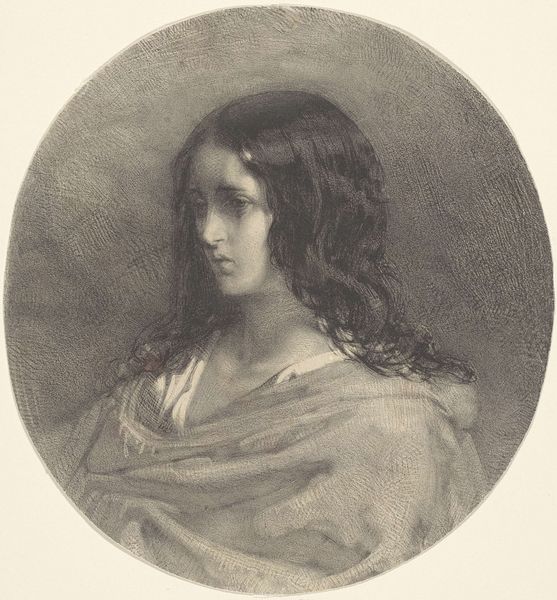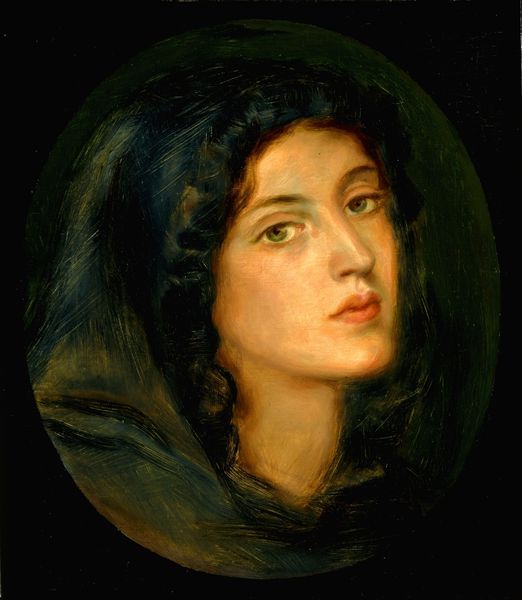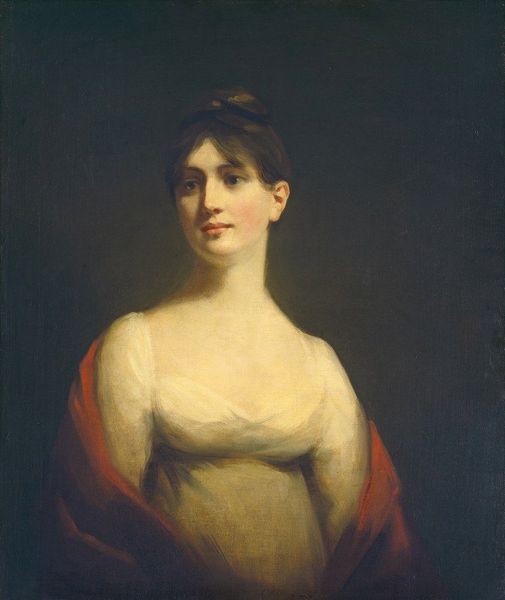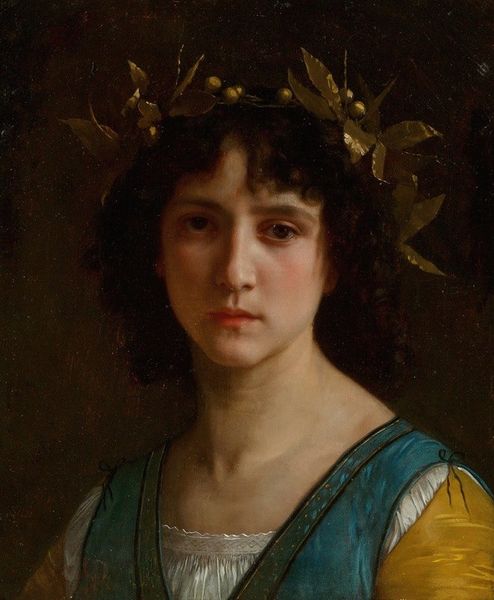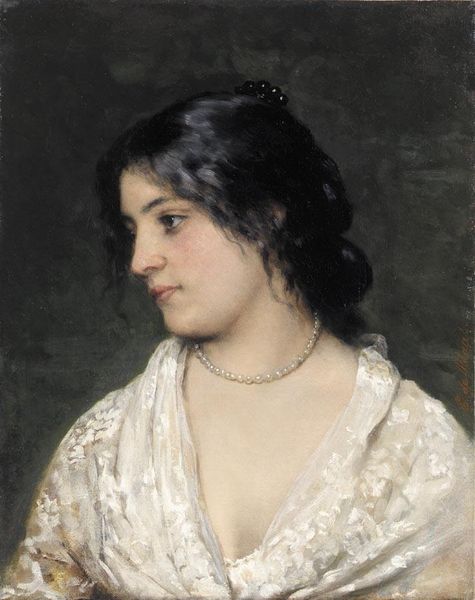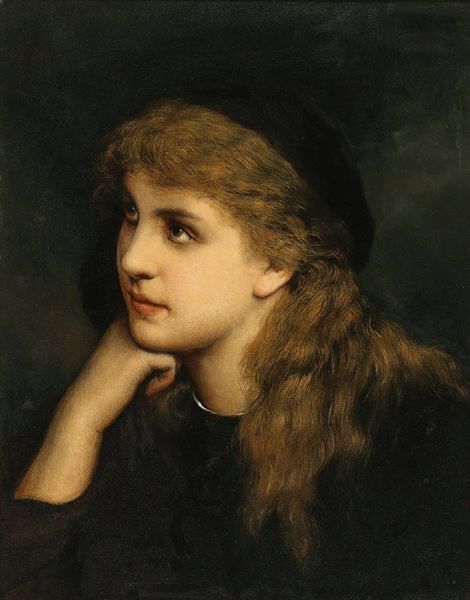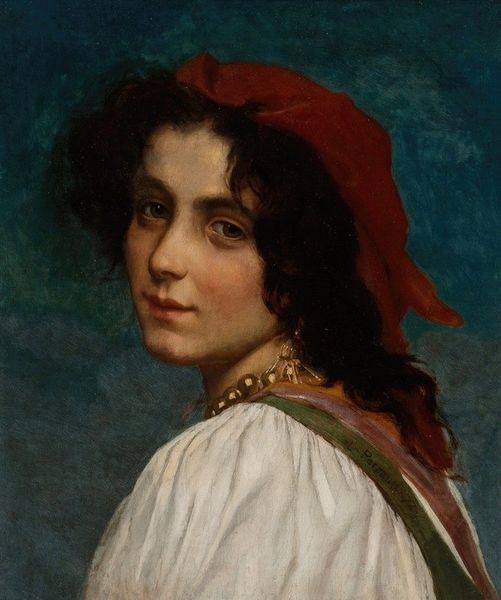
painting, oil-paint
#
portrait
#
allegories
#
allegory
#
portrait
#
painting
#
oil-paint
#
romanticism
#
symbolism
Copyright: Public domain
Editor: Here we have "Melancholy" by Arnold Böcklin, an oil painting depicting a woman. She appears almost theatrical, lost in a very specific sorrow. What do you see in this piece, considered from the societal influences on art? Curator: I see Böcklin engaging with the cultural fascination of his time, the late 19th century, with psychological states. It's less a portrait of an individual and more a personification of a mood, feeding into the Symbolist movement's interest in subjective experience. The heavy use of chiaroscuro and the woman's gaze, averted yet intense, draws the viewer into contemplating the very idea of melancholy. But who is this "melancholy" intended for, and for what socio-political purposes? Editor: So it's about the projection of melancholy rather than representing real suffering? I'm trying to understand how museums frame representations of emotion. Curator: Exactly. Böcklin's “Melancholy" speaks volumes about the role of art as a stage for the performance and consumption of emotion. Her idealized, almost romantic appearance arguably sanitizes the raw experience of suffering. It reflects the tastes of the era's bourgeois audiences who sought dramatic and aesthetically pleasing portrayals that were more consoling than confrontational, and we must question how those parameters dictated whose stories were valued and exhibited. Does this skew our understanding of the emotional landscape of that time? Editor: It’s really interesting to consider art through the lens of what society *wanted* to see, and how the presentation can shift the entire meaning of an artwork. Thanks, that's a new perspective for me. Curator: My pleasure! It highlights the complicated dance between artistic expression, cultural expectations, and the role that institutions play in shaping our understanding of history and the individual's relationship to the wider culture.
Comments
No comments
Be the first to comment and join the conversation on the ultimate creative platform.
